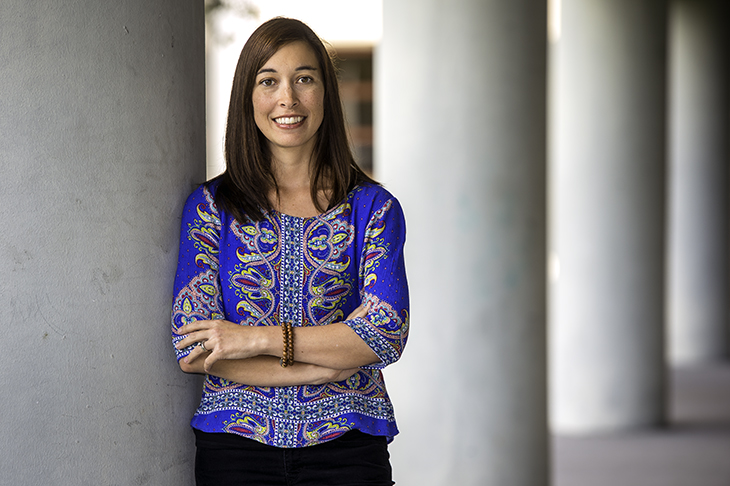Academic Success Center director makes the grade

“We need to embrace neurodiversity, a strengths-based approach that honors unique learners and brain wiring,” says Michele Oelking, director of the Academic Success Center. “There is a great deal of this engaged, interactive learning happening here at Tulane, and there is certainly opportunity to continue to develop in that way.” (Photo by Ryan Rivet)
Michele Oelking, director of the Academic Success Center at Tulane University, received accolades for her life-coaching efforts with students in Gambit"s “40 Under 40” feature, “The class of 2015: 40 New Orleanians you need to know.”
Oelking says it"s gratifying to see recognition of the efforts of the Academic Success Center, which was established in spring 2013.
“Our individualized coaching model addresses the unique learning and processing styles of each student to help them be successful in and outside of the classroom,” Oelking says.
“Our data shows reported increases in student self-efficacy, time management and organizational skills and academic performance, as well as improved emotional state. Through coaching, students have identified a "trusted" person on campus. For all students and particularly first-year students in transition, these outcomes are very relevant to student engagement and retention,” Oelking says.
So far this semester, the center"s total appointment count is 1,612 unique students. This includes one-on-one meetings for professional coaching, and peer-led tutoring and writing appointments. On top of that are the supplemental instruction sessions, group review sessions and workshops that the center offers. The center has three full-time coaches and currently can serve about 3 percent of the undergraduate student population through the success coaching program. To reach out for help, email Success@tulane.edu.
Tulane alumni in this year"s “40 Under 40” include Megan Holt, a postdoctoral teaching fellow in the Department of English who got a shout-out for spearheading community literacy programs in New Orleans; alumna Johanna Gilligan, founder and executive director of Grow Dat Youth Farm; and alumnus Alexander John Glustrom, filmmaker, photographer and artist who created the award-winning documentary Big Charity: The Death of America"s Oldest Hospital, which premiered at the New Orleans Film Festival in 2014 and was named 2015 Documentary of the Year by the Louisiana Endowment for the Humanities.
